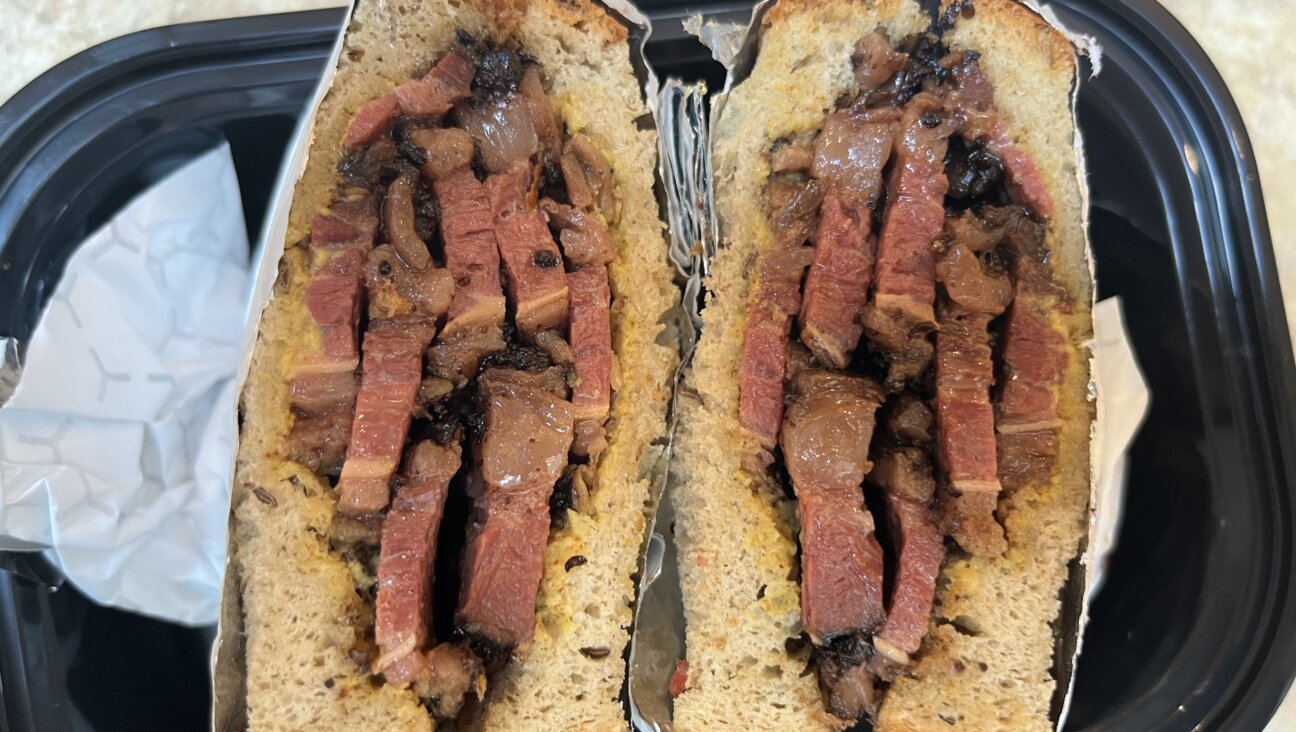Jewish Barbecue Is The Best — Even If You Hate Brooklyn BBQ

Image by iStock
Some senators recently took to Twitter to mock Vice’s new article on the rising popularity of Brooklyn barbecue. The article went viral as people took affront to the pathetic, sparse spread and New Yorker exceptionalism. The Internet has spoken, and it has declared Brooklyn barbecue ‘not a thing.’
Why is Brooklyn barbecue taking over the world? https://t.co/aiemJpWxZw pic.twitter.com/dGPyQ7X912
— MUNCHIES (@munchies) March 4, 2018
This is THE saddest tray of BBQ I have ever seen. Also, Brooklyn BBQ is NOT now, nor ever, taking over the world. https://t.co/XToWpiEdmb
— Jim Bob Breazeale (@jbbreazeale) March 4, 2018
If you live in Brooklyn I think you owe the entire country an apology for that Brooklyn BBQ story.
— Tom Fornelli (@TomFornelli) March 4, 2018
But Jewish barbecue is.
When we talk about Jewish barbecue we have to talk about brisket.
Brisket, the quintessential Jewish dish. Most Jewish holidays are food-centric and Passover is no exception. Braise it, toss it in an oven to bake for hours and voila, you have something to serve on Passover that honors tradition and wets everyone’s appetite at the same time.
Brisket was one of the cheapest cuts of meat available to beleaguered Ashkenazi Jews in the shtetls, partly because it was made from one of the toughest muscles of the cow and required slow cooking.
Fast forward a few formative years and American Jews were owning Jewish delis and brining briskets to make corned beef and other Lower East Side staples.
But brisket isn’t just for holiday meals. Head down to the South and you’ll find barbecue traditionalists ogling these handsome cuts, no utensils and no sauce necessary. Just hours in the smoker, a spice rubdown and some gentle, slow cooking.
Both the Jewish, brisket-eating immigrants and Southern ranchers who doubled as barbecue connoisseurs had something in common – neither group could afford the expensive cuts of meat that fancy meat recipes demanded. So both groups turned to brisket, which is how brisket became both a Passover necessity and a reliable presence at Southern barbecues.
But barbecue isn’t just a working man’s meal anymore and brisket isn’t just a Passover dish. Now brisket is barbecue and Southern Jews are embracing it.
Smoked barbecue brisket is also gaining followers among Jews more familiar with the oven-baked variety served at many family gatherings, the Wall Street Journal reported in 2015. Reflecting the rise in popularity, brisket prices have been creeping up. From Izzy’s Steakhouse to The Wandering Que, Jewish pitmasters are manning their own grills and barbecuing their own briskets. Brooklyn barbecue might be overpriced garbage, but the emerging art of Jewish barbecue sure isn’t.
Shira Feder is a writer for the Forward. You can reach her at [email protected]
The Forward is free to read, but it isn’t free to produce

I hope you appreciated this article. Before you go, I’d like to ask you to please support the Forward.
Now more than ever, American Jews need independent news they can trust, with reporting driven by truth, not ideology. We serve you, not any ideological agenda.
At a time when other newsrooms are closing or cutting back, the Forward has removed its paywall and invested additional resources to report on the ground from Israel and around the U.S. on the impact of the war, rising antisemitism and polarized discourse.
This is a great time to support independent Jewish journalism you rely on. Make a gift today!
— Rachel Fishman Feddersen, Publisher and CEO
Support our mission to tell the Jewish story fully and fairly.
Most Popular
- 1

Fast Forward Ye debuts ‘Heil Hitler’ music video that includes a sample of a Hitler speech
- 2

Culture Cardinals are Catholic, not Jewish — so why do they all wear yarmulkes?
- 3

Opinion It looks like Israel totally underestimated Trump
- 4

Fast Forward Student suspended for ‘F— the Jews’ video defends himself on antisemitic podcast
In Case You Missed It
-

Opinion It looks like Israel totally underestimated Trump
-

Fast Forward Betar ‘almost exclusively triggered’ UMass student detention, judge says
-

Fast Forward ‘Honey, he’s had enough of you’: Trump’s Middle East moves increasingly appear to sideline Israel
-

Fast Forward Yeshiva University rescinds approval for LGBTQ+ student club
-
Shop the Forward Store
100% of profits support our journalism
Republish This Story
Please read before republishing
We’re happy to make this story available to republish for free, unless it originated with JTA, Haaretz or another publication (as indicated on the article) and as long as you follow our guidelines.
You must comply with the following:
- Credit the Forward
- Retain our pixel
- Preserve our canonical link in Google search
- Add a noindex tag in Google search
See our full guidelines for more information, and this guide for detail about canonical URLs.
To republish, copy the HTML by clicking on the yellow button to the right; it includes our tracking pixel, all paragraph styles and hyperlinks, the author byline and credit to the Forward. It does not include images; to avoid copyright violations, you must add them manually, following our guidelines. Please email us at [email protected], subject line “republish,” with any questions or to let us know what stories you’re picking up.















